If you have a busy schedule, sleep can be a difficult thing to make time for. It might seem constructive to sacrifice those hours to study for an upcoming test, or to finish a homework assignment. But in the long run, what might seem like a productive decision does more hurt than help.
Junior Susan Kim said that managing both her school work/student activities and her sleep schedule consecutively is “challenging” to say the least.
“All the classes I take are very work heavy, and I have to put a lot of effort into them,” Kim said. “The workload of one class isn’t bad, but when they add, it’s definitely overwhelming.”
Because Kim likes to be “on top of things,” she finds that she ends up dedicating far more of her time to school rather than sleep.
“I always like to feel prepared, so I spend a good amount of time studying,” Kim said. “A good amount of sleep on a school day for me would be four to five hours, but I usually get around three on busy weeks. I would prefer to do better on a test than get a few more hours of sleep.”
The CDC recommends that high school students get a minimum of eight hours of sleep every 24 hours. And while Kim’s lack of sleep may give her more time to study, it’s not without its consequences
“I doze off during class and have trouble focusing,” Kim said. “I forget information easily, as simple as something I was going to mention to a friend. I feel very energetic at one point, and very tired at another, and everything becomes very funny. “
There are lasting effects of sleep deprivation, including long term mental illnesses, an inability to retain information, and a weakened immune system. These effects are often taken to the extreme when caused by prolonged sleep deprivation, and can’t be cured by adding in a couple extra hours of sleep into the weekend.
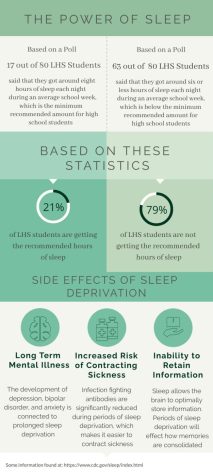
Kim said that she can “see a difference” in her performance when she gets a sufficient amount of sleep, as recommended by the CDC, and said that in these moments she feels “motivated,” and her brain “feels clear.”
Though Kim admitted that school does impact her sleep schedule, she also claims that her sleep deprivation stems from her desire to “feel prepared.”
“School did impact my sleep schedule to an extent, it’s also my personality of wanting to finish all my work,” Kim said.
Kim has struggled with insomnia in general, and in attempts to try and mend her somewhat chaotic sleep schedule, has been implementing helpful habits into her nighttime routine.
“I usually drink coffee, but I’m trying to cut caffeine,” Kim said. “I’ve tried melatonin, and I also silence notifications so I’m not distracted by my phone.”
Kim hopes that by adding these habits into her schedule, her sleep schedule never reverts back to how it was the week before February vacation, when she got a total of seven hours of sleep for the entire week.
“Somedays, I couldn’t get any sleep at all,and I saw my alarm go off, and got ready for school,” Kim said. “It was a busy week, and there was a lot going on in my personal life as well. So there was a lot to think about.”
Sophomore Rachel Hutchinson hasn’t always struggled with keeping up with her sleep schedule, but ever since she reached high school, she felt pressured to put school first.
“If I’m stressed or have to study and do extra homework, I have to stay up later,” Hutchinson said. “I usually get around five hours of sleep every night, but it could be less depending on the day.”
Hutchinson said that since waking up for an early morning church youth group class every day limits the amount of sleep she gets, she has been making herself go to bed earlier every night, and always steps back from what she’s doing by 8:30pm. And though attending such an early class does take off precious hours of sleep for Hutchinson, she said that it has taught her how to be more of a morning person.
“I used to hate waking up early,” Hutchinson said, “and I still do. But it’s become easier as time goes by, and I know it will benefit me in the long run.”
Though she’s become accustomed to getting a limited amount of sleep every night, Hutchinson said that her “ability to focus” is often hindered.
“I get kinda crazy,” Hutchinson said. “I think I get a little less sensitive to my surroundings and am able to read the room less. I’m just shameless and don’t have as heavy of a filter because I’m too tired.”
Though the reason for her sleep deprivation doesn’t solely have to do with school, Hutchinson said that it definitely plays a big role.
“If I didn’t have school, that would help me get more sleep,” Hutchinson said. “But it’s also helped me learn the value of sleep.”
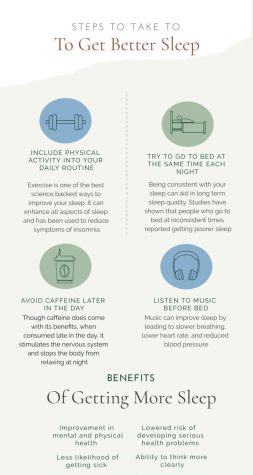
Junior Maylee Valentin said that she doesn’t always stay up late, but when she does, it’s because she has “a lot on [her] mind.”
“I’m either worried, stressed about something, or I’m really excited for something,” Valentin said.
Valentin said that she usually gets around five to six hours of sleep a night, which she’s become used to. But when she gets even less, she finds she feels the prominent effects of sleep deprivation.
“When I don’t get enough sleep I become very irritated throughout the day and even little things annoy me,” Valentin said. “When I do get enough sleep and I’m well rested, I tend to be more motivated and happy during the day.”
Though she’s accustomed to her current sleep schedule, Valentin said that she wants to put a greater emphasis on sleep. And she finds that by shifting her “mindset,” she’s been able to slowly implement objectives for herself that motivate her to focus on getting enough sleep.
“I just think anything I try to do past 12 will probably not be beneficial to me at all because I won’t remember,” Valentin said. “Homework is important, but you’ve got to put yourself first.”
Sleep is something that students more than often put after school, work, and extracurricular activities. But in doing this, they risk their mental, physical, and emotional health. Why sacrifice a night of sleep to study for a test that you will be too tired to take during the school day? It’s important to put your mental and physical health first, and that means instead of reaching for a textbook at 1am, maybe grab a pillow and blanket.



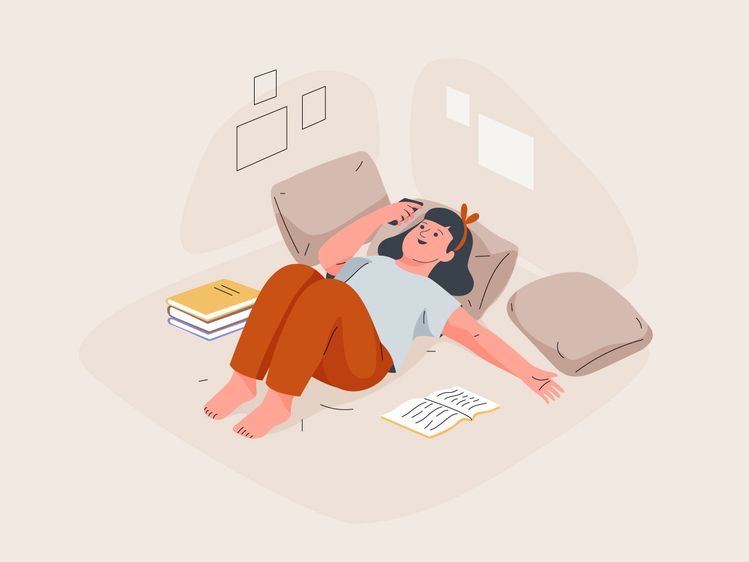





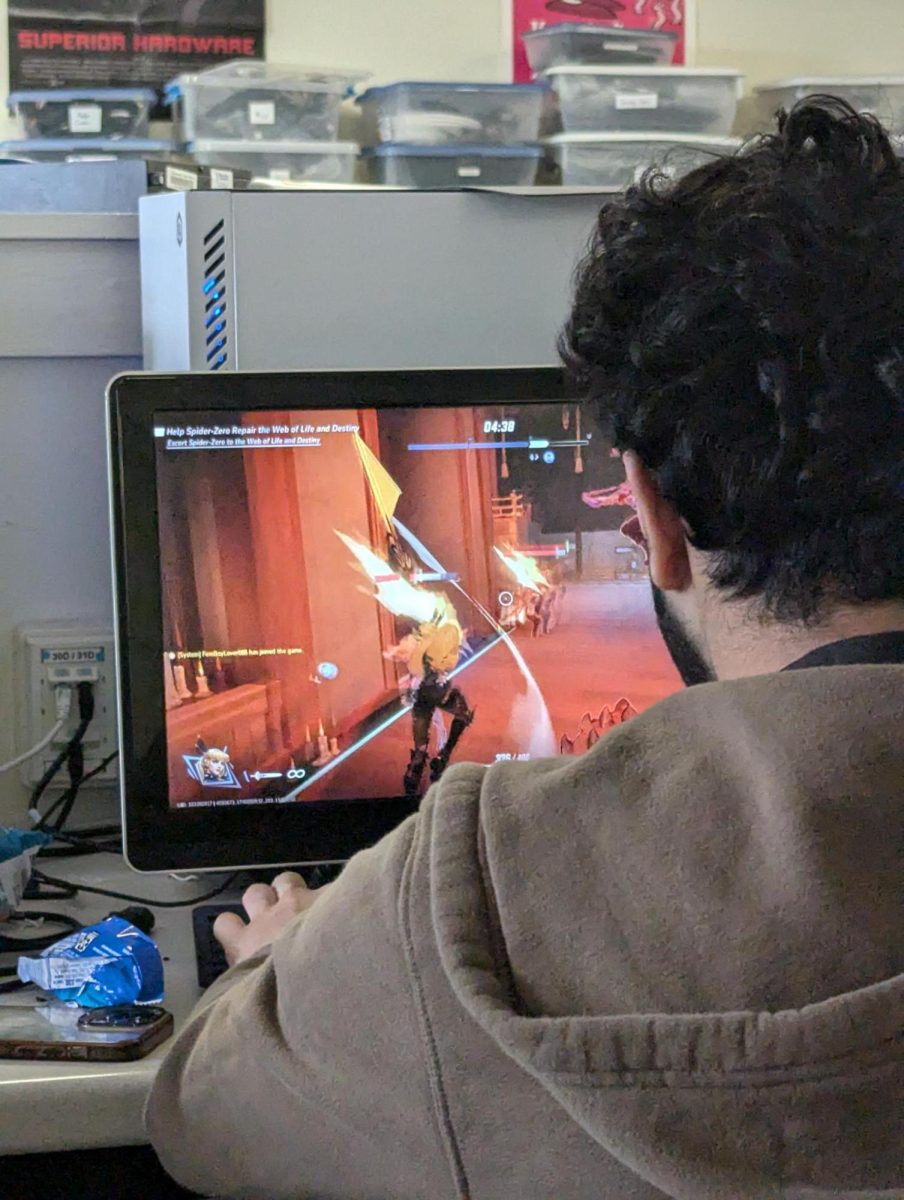


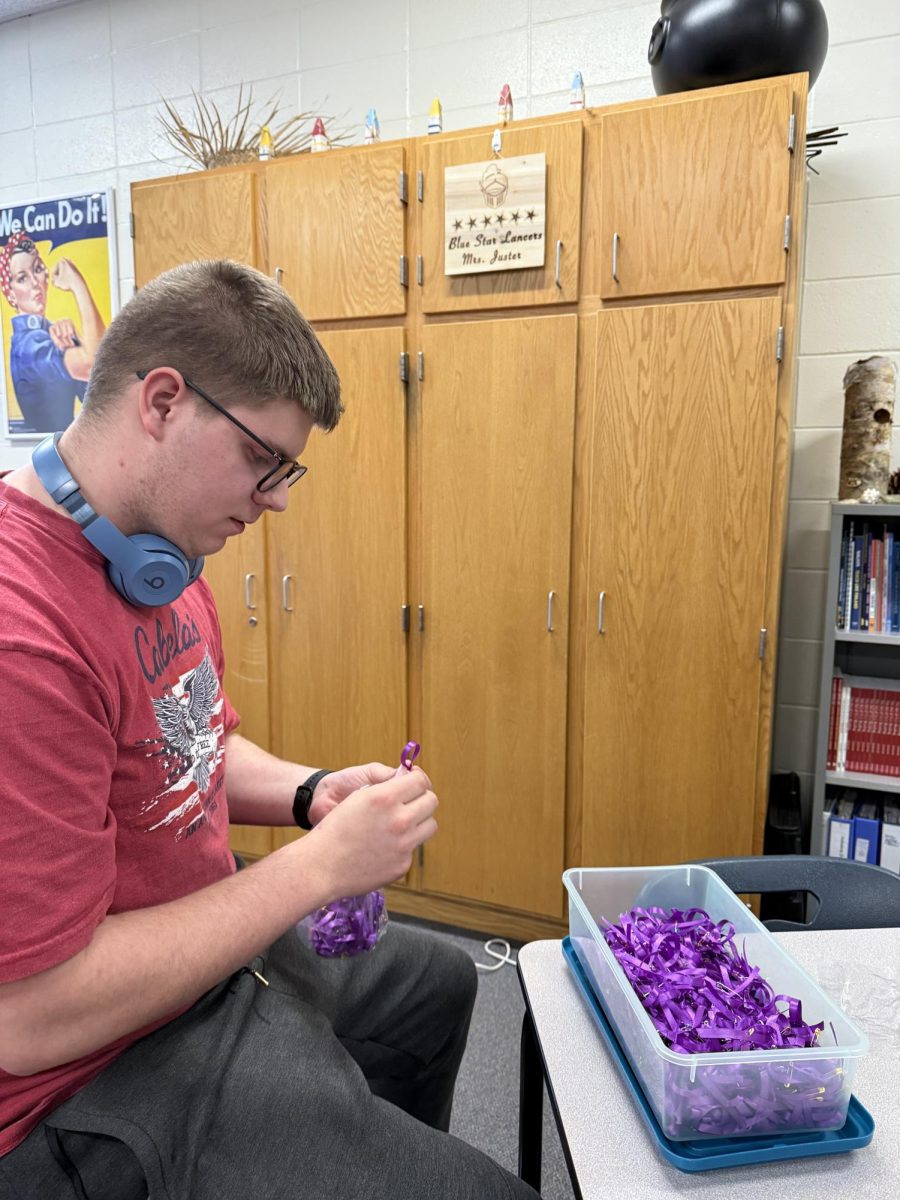



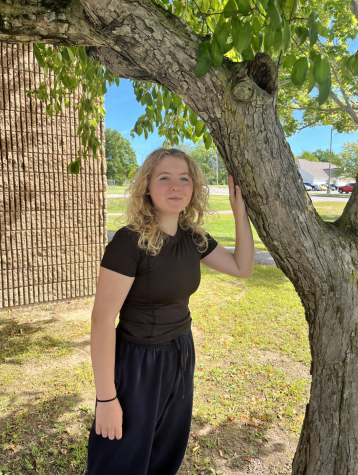

Tim Gore
Mar 29, 2022 at 9:52 pm
Great article Catie!! (and the infographics = amazing)